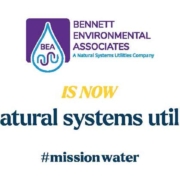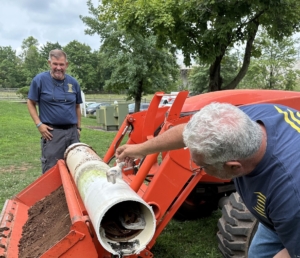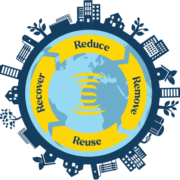Artificial Wetland Market to Witness Stunning Growth | Major Giants Tetra Tech, Stantec, PureBlue
HTF MI recently introduced Global Artificial Wetland Market study with 143+ pages in-depth overview, describing about the Product / Industry Scope and elaborates market outlook and status (2024-2032). The market Study is segmented by key regions which is accelerating the marketization. At present, the market is developing its presence. Some key players from the complete study are Ecolotree, WesTech Engineering, Biomatrix Water, PureBlue, ARM Group, Constructed Wetlands, Natural Systems Utilities, WaterIQ Technologies, Ecoactive, Habitat Solutions, Geosyntec, AECOM, Cardno, Ramboll, Stantec, Jacobs Engineering, Black & Veatch, Tetra Tech, Brown and Caldwell, HDR.
Download Sample Report PDF (Including Full TOC, Table & Figures) 👉 https://www.htfmarketreport.com/sample-report/3518456-worldwide-artificial-wetland-market?utm_source=Akash_OpenPR&utm_id=Akash
According to HTF MI, the Artificial Wetland Market have seen a market size of USD 2.1 Billion in 2024 and estimated to reach USD 3.8 Billion by 2032, growth at a CAGR of 6.8%. Historically, back in 2019 the Artificial Wetland market have seen a value of USD 1.5 Billion and since then market have recovered completely and showing robust growth.
The Artificial Wetland market is segmented by Types (Surface-flow, Subsurface-flow, Hybrid, Floating), Application (Wastewater treatment, Habitat creation, Stormwater management, Pollution control) and by Geography (North America, LATAM, West Europe, Central & Eastern Europe, Northern Europe, Southern Europe, East Asia, Southeast Asia, South Asia, Central Asia, Oceania, MEA).
Definition:
Artificial wetlands, also known as constructed wetlands, are engineered systems designed to mimic the functions of natural wetlands for purposes such as water treatment, flood control, and habitat restoration. They leverage natural processes involving wetland vegetation, soils, and microbial life to purify water by removing contaminants such as heavy metals, nutrients, and pathogens. The rising environmental awareness and the need for sustainable urban solutions drive the adoption of artificial wetlands for wastewater treatment, stormwater management, and habitat restoration. Challenges include space constraints and long-term maintenance. However, ongoing innovations in hybrid wetland systems are helping overcome these limitations.
Dominating Region:
• Europe
Fastest-Growing Region:
• Asia-Pacific
Have a query? Market an enquiry before purchase 👉 https://www.htfmarketreport.com/enquiry-before-buy/3518456-worldwide-artificial-wetland-market?utm_source=Akash_OpenPR&utm_id=Akash
The titled segments and sub-section of the market are illuminated below:
In-depth analysis of Artificial Wetland market segments by Types: Surface-flow, Subsurface-flow, Hybrid, Floating
Detailed analysis of Tank Container Shipping market segments by Applications: Wastewater treatment, Habitat creation, Stormwater management, Pollution control
Geographically, the detailed analysis of consumption, revenue, market share, and growth rate of the following regions:
• The Middle East and Africa (South Africa, Saudi Arabia, UAE, Israel, Egypt, etc.)
• North America (United States, Mexico & Canada)
• South America (Brazil, Venezuela, Argentina, Ecuador, Peru, Colombia, etc.)
• Europe (Turkey, Spain, Turkey, Netherlands Denmark, Belgium, Switzerland, Germany, Russia UK, Italy, France, etc.)
• Asia-Pacific (Taiwan, Hong Kong, Singapore, Vietnam, China, Malaysia, Japan, Philippines, Korea, Thailand, India, Indonesia, and Australia).
Buy Now Latest Edition of Artificial Wetland Market Report 👉 https://www.htfmarketreport.com/buy-now?format=1&report=3518456?utm_source=Akash_OpenPR&utm_id=Akash
Artificial Wetland Market Research Objectives:
– Focuses on the key manufacturers, to define, pronounce and examine the value, sales volume, market share, market competition landscape, SWOT analysis, and development plans in the next few years.
– To share comprehensive information about the key factors influencing the growth of the market (opportunities, drivers, growth potential, industry-specific challenges and risks).
– To analyze the with respect to individual future prospects, growth trends and their involvement to the total market.
– To analyze reasonable developments such as agreements, expansions new product launches, and acquisitions in the market.
– To deliberately profile the key players and systematically examine their growth strategies.
FIVE FORCES & PESTLE ANALYSIS:
In order to better understand market conditions five forces analysis is conducted that includes the Bargaining power of buyers, Bargaining power of suppliers, Threat of new entrants, Threat of substitutes, and Threat of rivalry.
• Political (Political policy and stability as well as trade, fiscal, and taxation policies)
• Economical (Interest rates, employment or unemployment rates, raw material costs, and foreign exchange rates)
• Social (Changing family demographics, education levels, cultural trends, attitude changes, and changes in lifestyles)
• Technological (Changes in digital or mobile technology, automation, research, and development)
• Legal (Employment legislation, consumer law, health, and safety, international as well as trade regulation and restrictions)
• Environmental (Climate, recycling procedures, carbon footprint, waste disposal, and sustainability)
Get 10-25% Discount on Immediate purchase 👉 https://www.htfmarketreport.com/request-discount/3518456-worldwide-artificial-wetland-market?utm_source=Akash_OpenPR&utm_id=Akash
Points Covered in Table of Content of Global Artificial Wetland Market:
Chapter 01 – Artificial Wetland Executive Summary
Chapter 02 – Market Overview
Chapter 03 – Key Success Factors
Chapter 04 – Global Artificial Wetland Market – Pricing Analysis
Chapter 05 – Global Artificial Wetland Market Background or History
Chapter 06 – Global Artificial Wetland Market Segmentation (e.g. Type, Application)
Chapter 07 – Key and Emerging Countries Analysis Worldwide Artificial Wetland Market
Chapter 08 – Global Artificial Wetland Market Structure & worth Analysis
Chapter 09 – Global Artificial Wetland Market Competitive Analysis & Challenges
Chapter 10 – Assumptions and Acronyms
Chapter 11 – Artificial Wetland Market Research Methodology
Key questions answered
• How Global Artificial Wetland Market growth & size is changing in next few years?
• Who are the Leading players and what are their futuristic plans in the Global Artificial Wetland market?
• What are the key concerns of the 5-forces analysis of the Global Artificial Wetland market?
• What are the strengths and weaknesses of the key vendors?
• What are the different prospects and threats faced by the dealers in the Global Artificial Wetland market?
Thanks for reading this article; you can also get individual chapter-wise sections or region-wise report versions like North America, LATAM, Europe, Japan, Australia or Southeast Asia.
Nidhi Bhawsar (PR & Marketing Manager)
HTF Market Intelligence Consulting Private Limited
Phone: +15075562445
sales@htfmarketreport.com
About Author:
HTF Market Intelligence Consulting is uniquely positioned to empower and inspire with research and consulting services to empower businesses with growth strategies. We offer services with extraordinary depth and breadth of thought leadership, research, tools, events, and experience that assist in decision-making.
This release was published on openPR.






















